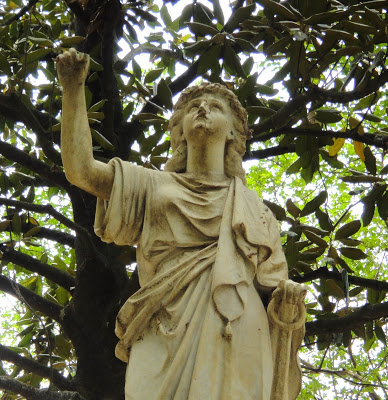 Richmond, Texas used to be synonymous with the hassle of car paperwork. But now that Fort Bend County has opened up a registration office closer to civilization on Highway 99, Richmond can be enjoyed for the historic intrigues of this old settlement and its many charms.
Richmond, Texas used to be synonymous with the hassle of car paperwork. But now that Fort Bend County has opened up a registration office closer to civilization on Highway 99, Richmond can be enjoyed for the historic intrigues of this old settlement and its many charms. 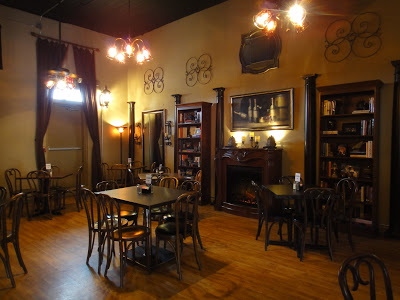
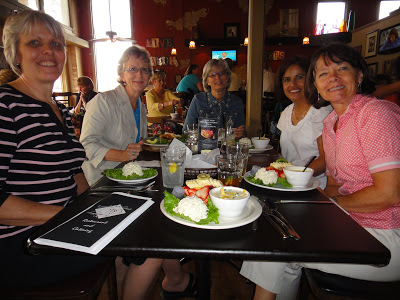 Most charming of these: Sandy McGee’s (314 Morton St., Richmond, TX, 77469, 281-344-9393). My mom and her friends let me tag along on their lunch date. Try ‘The Foodie n’ Us All’—crab corn chowder, a scoop of chicken salad and fruit salad with the house poppyseed dressing. Yum!
Most charming of these: Sandy McGee’s (314 Morton St., Richmond, TX, 77469, 281-344-9393). My mom and her friends let me tag along on their lunch date. Try ‘The Foodie n’ Us All’—crab corn chowder, a scoop of chicken salad and fruit salad with the house poppyseed dressing. Yum!
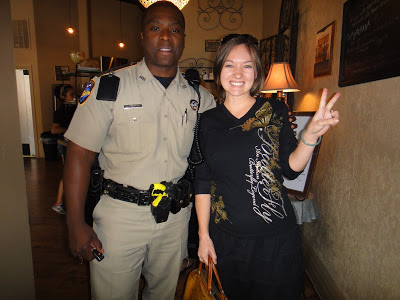 Just ahead of us in line was your classic Texas police officer. This is the guy you see on warnings to not steal gas, writing tickets alongside the highway or responding to your 911 call all around Texas. They all wear cowboy hats outside. Isn’t that so Texas?? I asked if he’d mind posing for Mari’s Passport Diaries. He did not.
Just ahead of us in line was your classic Texas police officer. This is the guy you see on warnings to not steal gas, writing tickets alongside the highway or responding to your 911 call all around Texas. They all wear cowboy hats outside. Isn’t that so Texas?? I asked if he’d mind posing for Mari’s Passport Diaries. He did not.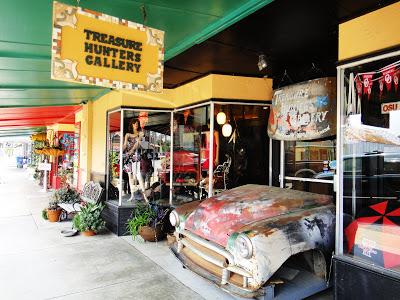
 After lunch we walked down Morton Street while the clacking and tooting of a freight train clambered toward us a block away, then we looped around to the old Methodist church, historic courthouse and past the old Congressman John Moore Home, which is open for tours most days of the week and houses the Fort Bend Museum. It was here we learned that “Fort Settlement” was first inhabited by in 1822 by settlers from Stephen F. Austin’s colony.
After lunch we walked down Morton Street while the clacking and tooting of a freight train clambered toward us a block away, then we looped around to the old Methodist church, historic courthouse and past the old Congressman John Moore Home, which is open for tours most days of the week and houses the Fort Bend Museum. It was here we learned that “Fort Settlement” was first inhabited by in 1822 by settlers from Stephen F. Austin’s colony.
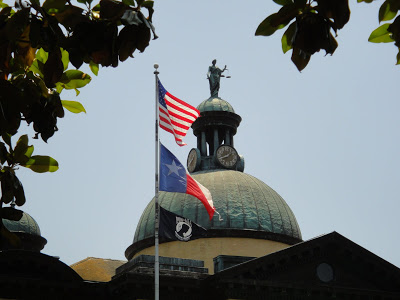
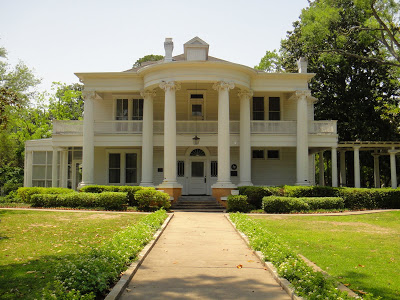 The same year, Erastus “Deaf” Smith, a Texas spy who intercepted critical intelligence from Mexican couriers during the Texas Revolution, died in Richmond, which was one of the original 19 cities incorporated into the Republic of Texas. The town boomed in 1855 when part of Texas’ first railroad—the Buffalo Bayou, Brazos & Colorado Railroad—came through.
The same year, Erastus “Deaf” Smith, a Texas spy who intercepted critical intelligence from Mexican couriers during the Texas Revolution, died in Richmond, which was one of the original 19 cities incorporated into the Republic of Texas. The town boomed in 1855 when part of Texas’ first railroad—the Buffalo Bayou, Brazos & Colorado Railroad—came through. 
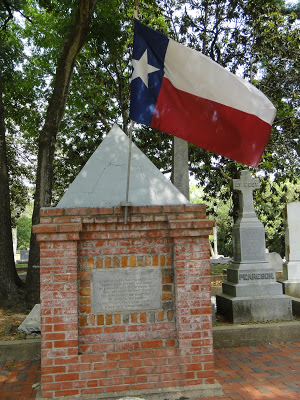 Richmond redeems itself thanks to big steps in the field of cattle ranching and by having Moore Cemetery, eternal resting place of M. B. Lamar, President of the Republic of Texas, as well as Jane Long. We stopped at the Richmond Police Station, which used to be the old jail, to ask directions. I like old cemeteries like this one and the ones in Savannah, Georgia, or the forgotten ones in old family estates like on Cumberland Island. I like the well-chosen scripture carved into fading tombstones and it breaks my heart to see the tiny stones over miniature graves graced with mournful lines of verse: “Sweetly sleep, dear lamb, at rest. God brought you home; He thought it best.” Who knew Richmond, Texas was such an interesting cross-section of Texas history?
Richmond redeems itself thanks to big steps in the field of cattle ranching and by having Moore Cemetery, eternal resting place of M. B. Lamar, President of the Republic of Texas, as well as Jane Long. We stopped at the Richmond Police Station, which used to be the old jail, to ask directions. I like old cemeteries like this one and the ones in Savannah, Georgia, or the forgotten ones in old family estates like on Cumberland Island. I like the well-chosen scripture carved into fading tombstones and it breaks my heart to see the tiny stones over miniature graves graced with mournful lines of verse: “Sweetly sleep, dear lamb, at rest. God brought you home; He thought it best.” Who knew Richmond, Texas was such an interesting cross-section of Texas history?